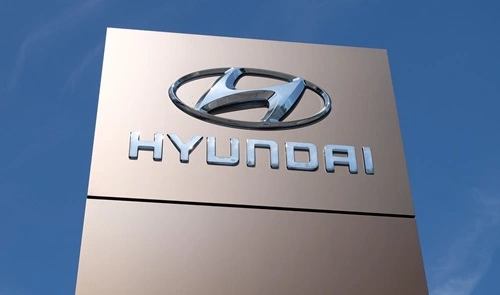Hyundai Motor Company, founded in 1967, has grown into one of the largest and most recognized automakers globally. Known for its innovation, extensive product lineup, and competitive pricing, Hyundai operates in over 190 countries. The company has made significant strides in electric and autonomous vehicle technology and continues to expand into luxury segments with its Genesis brand. As of 2024, Hyundai faces both opportunities and challenges in a rapidly evolving automotive landscape, making a SWOT (Strengths, Weaknesses, Opportunities, Threats) analysis crucial to understanding its market position.

Current Overview of Hyundai
Hyundai’s global presence is reinforced by its diverse product offerings, including sedans, SUVs, electric vehicles (EVs), and luxury cars. In 2023, Hyundai sold over 4.2 million vehicles worldwide, and its domestic arm in India achieved record sales. The company has also placed a strong emphasis on electrification, planning to invest significantly in EV technology, autonomous driving, and infrastructure. Despite its achievements, Hyundai faces increasing competition from established players like Toyota and Volkswagen, as well as electric vehicle startups like Tesla.
Strengths
1. Strong Brand Image: Hyundai is ranked as one of the world’s most valuable brands, known for reliability, affordability, and quality. Its strong global recognition helps the company attract a wide customer base.
2. Diversified Product Portfolio: Hyundai offers a wide range of vehicles, from budget-friendly sedans to high-end luxury cars under its Genesis brand. This diversity allows the company to cater to various market segments, including the growing demand for electric and hybrid vehicles.
3. Technological Innovation: Hyundai has invested heavily in future technologies, including electric vehicles (EVs), hydrogen fuel cells, and autonomous driving systems. The company’s IONIQ brand focuses exclusively on EVs, positioning Hyundai as a leader in the green mobility space.
4. Global Manufacturing and Vertical Integration: Hyundai’s vertical integration, producing critical components like engines in-house, allows for better supply chain control and cost savings. Its global manufacturing footprint further strengthens its ability to meet demand across regions.
5. Strong After-Sales Service: Hyundai has built a reputation for dependable after-sales support, with a vast network of service centers ensuring customer satisfaction and loyalty.
Weaknesses
1. Limited Presence in the Luxury Segment: Despite the success of its Genesis brand, Hyundai still struggles to compete with established luxury brands like BMW, Mercedes, and Lexus. Building a stronger presence in this high-margin segment remains a challenge.
2. Overreliance on Sedans: While Hyundai has made strides in SUVs and EVs, it still relies heavily on sedans, a segment experiencing declining global demand as more consumers shift toward SUVs.
3. Quality Perception and Recalls: Although Hyundai has improved in quality, it has faced several high-profile recalls, which can damage its reputation for reliability and affect customer trust.
4. Weak Performance in the Chinese Market: Hyundai has struggled to establish a strong foothold in China, the world’s largest auto market. The brand’s visibility and sales lag behind competitors like Volkswagen and Toyota.
5. High Operating Costs: Rising raw material costs and manufacturing overheads have put pressure on Hyundai’s profit margins, limiting its ability to maintain competitive pricing.
Opportunities
1. Expansion in Electric Vehicles: Hyundai is well-positioned to benefit from the growing global demand for EVs, especially with its strong investments in electrification and sustainable technology. Expanding its EV lineup and charging infrastructure can boost its market share in this sector.
2. Growing Demand for SUVs: With SUVs continuing to dominate global vehicle sales, Hyundai can capitalize on this trend by further expanding its SUV portfolio and enhancing its presence in emerging markets.
3. Growth in Emerging Markets: Regions like Southeast Asia, India, and Latin America offer significant growth opportunities. Hyundai can expand production and develop localized products to tap into these markets.
4. Autonomous Driving and Mobility Services: The development of autonomous driving technologies presents a major growth avenue. Hyundai can leverage its investments in AI, connectivity, and autonomous systems to create new mobility services like ride-sharing and fleet management.
5. Genesis Brand Growth: Hyundai’s Genesis brand has the potential to establish itself as an affordable luxury alternative to German brands. By focusing on customer experience and expanding its lineup, Hyundai can grow in the luxury segment.
Threats
1. Intense Competition: Hyundai faces stiff competition from global auto giants like Toyota, Ford, and Volkswagen, as well as emerging electric vehicle manufacturers like Tesla and Rivian. Maintaining market share in this crowded landscape is a constant challenge.
2. Rising Raw Material Costs: The increasing cost of raw materials, such as steel and semiconductors, is putting pressure on Hyundai’s profitability. The company must find ways to mitigate these costs without sacrificing quality or competitive pricing.
3. Tighter Emission Regulations: As governments around the world introduce stricter emission and fuel efficiency standards, Hyundai must invest heavily in new technologies to comply. Failing to do so could lead to fines or restricted market access.
4. Supply Chain Disruptions: The automotive industry has faced several supply chain disruptions in recent years, including semiconductor shortages and the impact of global crises like COVID-19. These challenges could hinder Hyundai’s production and delivery capabilities.
5. Economic Volatility: Global economic downturns, fluctuating currency exchange rates, and recessions can negatively affect vehicle sales, especially in price-sensitive markets.
Conclusion
Hyundai remains a dominant force in the global automotive industry due to its technological innovation, strong brand image, and diversified product portfolio. The company is well-positioned to capitalize on the growing demand for electric vehicles, SUVs, and new mobility services. However, Hyundai must address challenges such as intense competition, rising costs, and evolving consumer preferences to maintain its leadership position. By continuing to innovate and adapt to market trends, Hyundai can navigate these challenges and seize future opportunities.